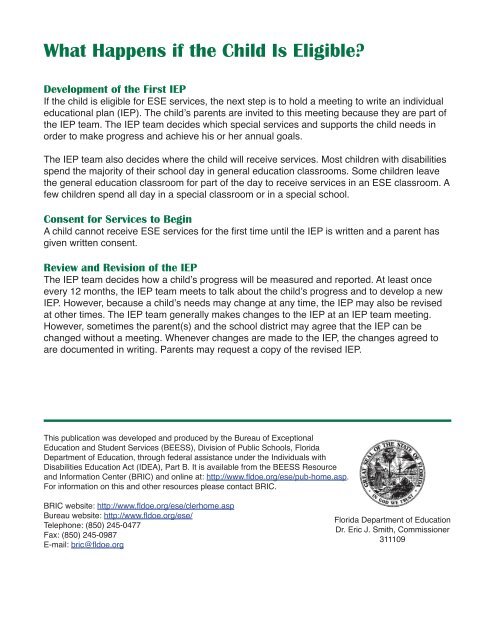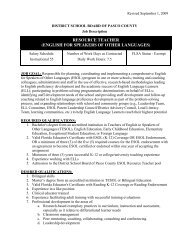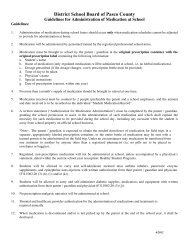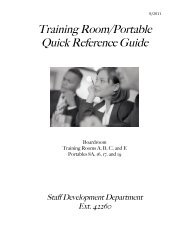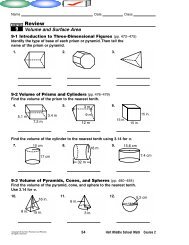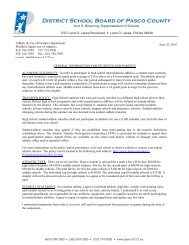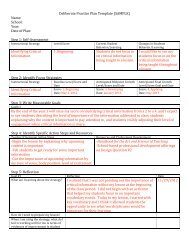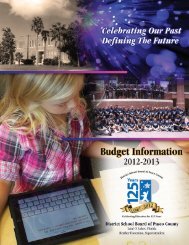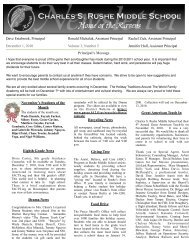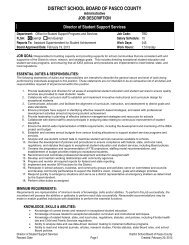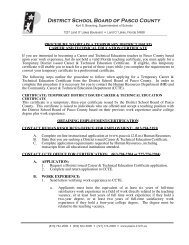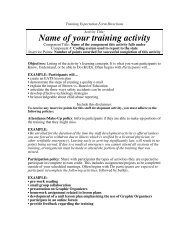What Is Exceptional Student Education for Children with Disabilities?
What Is Exceptional Student Education for Children with Disabilities?
What Is Exceptional Student Education for Children with Disabilities?
Create successful ePaper yourself
Turn your PDF publications into a flip-book with our unique Google optimized e-Paper software.
<strong>What</strong> Happens if the Child <strong>Is</strong> Eligible?Development of the First IEPIf the child is eligible <strong>for</strong> ESE services, the next step is to hold a meeting to write an individualeducational plan (IEP). The child’s parents are invited to this meeting because they are part ofthe IEP team. The IEP team decides which special services and supports the child needs inorder to make progress and achieve his or her annual goals.The IEP team also decides where the child will receive services. Most children <strong>with</strong> disabilitiesspend the majority of their school day in general education classrooms. Some children leavethe general education classroom <strong>for</strong> part of the day to receive services in an ESE classroom. Afew children spend all day in a special classroom or in a special school.Consent <strong>for</strong> Services to BeginA child cannot receive ESE services <strong>for</strong> the first time until the IEP is written and a parent hasgiven written consent.Review and Revision of the IEPThe IEP team decides how a child’s progress will be measured and reported. At least onceevery 12 months, the IEP team meets to talk about the child’s progress and to develop a newIEP. However, because a child’s needs may change at any time, the IEP may also be revisedat other times. The IEP team generally makes changes to the IEP at an IEP team meeting.However, sometimes the parent(s) and the school district may agree that the IEP can bechanged <strong>with</strong>out a meeting. Whenever changes are made to the IEP, the changes agreed toare documented in writing. Parents may request a copy of the revised IEP.This publication was developed and produced by the Bureau of <strong>Exceptional</strong><strong>Education</strong> and <strong>Student</strong> Services (BEESS), Division of Public Schools, FloridaDepartment of <strong>Education</strong>, through federal assistance under the Individuals <strong>with</strong><strong>Disabilities</strong> <strong>Education</strong> Act (IDEA), Part B. It is available from the BEESS Resourceand In<strong>for</strong>mation Center (BRIC) and online at: http://www.fldoe.org/ese/pub-home.asp.For in<strong>for</strong>mation on this and other resources please contact BRIC.BRIC website: http://www.fldoe.org/ese/clerhome.aspBureau website: http://www.fldoe.org/ese/Telephone: (850) 245-0477Fax: (850) 245-0987E-mail: bric@fldoe.orgFlorida Department of <strong>Education</strong>Dr. Eric J. Smith, Commissioner311109


